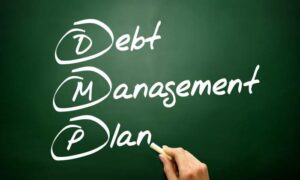
Debt resolution is like a treasure map leading you out of the dark forest of financial woes—complete with negotiation ninjas, budgeting wizards, and the occasional dragon of bankruptcy! Strap in as we embark on this exhilarating journey through the land of dollar bills, where we’ll explore the many paths to reclaiming your financial throne.
We’ll dive into an array of debt resolution strategies that will have you negotiating with creditors like a seasoned diplomat and weighing the pros and cons of debt settlement versus bankruptcy. Plus, we’ll reveal the magic of DIY debt resolution versus enlisting professional help, all while ensuring you’ve got your budgeting spells ready to manage your finances like a pro!
Debt Resolution Strategies

In the wild, wild west of personal finance, debt can feel like an outlaw on the loose. But fear not, brave debtor! With the right debt resolution strategies in your saddlebag, you can tame that financial beast and ride off into the sunset. Various methods exist to wrangle that debt, from negotiations with creditors to the more drastic measures like bankruptcy.
Each option has its own set of pros and cons, so let’s dive into these strategies with the enthusiasm of a cowboy finding gold!
Negotiation with Creditors
Negotiating with creditors is akin to bartering at a flea market: it may involve some haggling, but both parties can walk away happy. When you approach your creditors, you might be able to negotiate lower interest rates, reduced payment plans, or even a full settlement for less than what you owe. Here’s why this method can be beneficial:
-
Preserves your credit score.
Negotiating can keep your record cleaner than a freshly washed car.
- Flexibility. Creditors may be more willing to work with you than you’d expect, especially if you explain your situation.
-
Potential cost savings.
Settling for a lower amount can leave you with extra cash to buy that shiny new toaster you’ve been eyeing.
However, be aware of the pitfalls:
-
It can be time-consuming.
Not every negotiation is quick; you might feel like you’re in a never-ending phone call with a customer service rep.
- Creditors may not always agree to your terms. If they say no, you’re back at square one, like a board game that won’t end.
Debt Settlement vs. Bankruptcy
When the debt mountain looms tall, some may consider rolling the dice with debt settlement or taking the plunge into bankruptcy. Here’s a breakdown of these two stark choices:
-
Debt Settlement.
This involves negotiating to pay less than the full amount owed. This option can be less damaging to your credit score compared to bankruptcy.
-
Bankruptcy.
A legal process that wipes the slate clean but might leave your credit score looking like a sad, deflated balloon.
The benefits of debt settlement include avoiding the long-lasting consequences of bankruptcy and potentially settling quicker. On the flip side, bankruptcy can provide a fresh start for those totally overwhelmed, albeit with the downside of lingering credit consequences.
DIY Debt Resolution vs. Professional Services
When tackling debt, you can choose the path of the lone ranger with DIY efforts or enlist the help of professional services. Each has its own merits:
-
DIY Debt Resolution.
This approach means you take charge of your financial destiny. It can save you money on service fees and give you the satisfaction of managing your own affairs.
-
Professional Services.
These experts can provide tailored help and strategies, possibly leading to better results. However, they usually come with a price tag that could rival a dinner at a five-star restaurant.
The DIY route requires perseverance, organization, and a pinch of tenacity, while professional services can offer peace of mind but may cost a hefty sum. Choosing the right path depends on individual circumstances, motivation, and how much you enjoy navigating the financial wilderness alone.
Financial Management in Debt Resolution
Navigating through the rocky road of debt resolution can feel like trying to find a unicorn in a haystack. But fear not! With effective financial management strategies, you can transform your financial chaos into a symphony of savings and repayment success. Let’s dive into some practical techniques that will keep your budget from resembling a soap opera plot twist!
Budgeting Techniques for Financial Management
Establishing a solid budget is like building a fortress against the invading armies of debt. Here are some effective budgeting techniques to help manage finances during the debt resolution process:
The 50/30/20 Rule
Allocate 50% of your income to needs, 30% to wants, and 20% to savings and debt repayment. This classic approach is akin to giving your finances a balanced diet—caffeine-free, of course!
Zero-Based Budgeting
Assign every dollar a specific role until your income minus expenses equals zero. Think of it as a game of financial Tetris—fitting pieces together for a perfect score!
Envelope System
For those who love a more tactile approach, dividing your cash into envelopes for different spending categories can help keep you accountable. Just remember, no sneaking in a surprise pizza fund!
Track Your Expenses
Use apps or good old-fashioned spreadsheets to monitor where your money goes. It’s like being a detective in your own financial mystery—who took the last dollar? Spoiler alert: it was still you!
Role of Credit Counseling in Debt Management
Credit counseling is like having a personal trainer for your finances, guiding you through the weightlifting of debt repayment. By working with a certified credit counselor, you can develop a personalized debt repayment plan tailored to your unique situation. This professional can help you:
Assess Your Financial Situation
They’ll analyze income, expenses, and debts, giving you a clear picture of where you stand—like a financial MRI, minus the claustrophobia!
Create a Customized Plan
Based on your assessment, they’ll devise a plan that fits your lifestyle while aiming to get you out of debt faster. Think of it as your financial roadmap, complete with detours around potholes (a.k.a. overspending).
Negotiate with Creditors
Counselors can help negotiate better terms with your creditors, potentially lowering interest rates or setting up manageable payment plans. They’re like your financial negotiator, armed with a briefcase of goodwill and smooth talking!
Importance of Financial Literacy in Debt Relief Options
Financial literacy is the secret sauce in the recipe for effective debt relief. Understanding your financial landscape enables you to make informed decisions. Here are key aspects to enhance your financial literacy during debt resolution:
Understanding Credit Scores
Knowing how your credit score works can help you avoid pitfalls and improve your score over time. Consider it your financial report card—don’t let it give you an F!
Identifying the Right Debt Relief Options
From debt consolidation to bankruptcy, knowing the pros and cons of each option allows you to choose wisely. It’s like choosing between a roller coaster or a merry-go-round—make sure you’re prepared for the ride!
Recognizing Predatory Practices
Understanding common scams and predatory lending practices ensures you won’t fall for the flashy promises of a “quick fix.” Remember, if it sounds too good to be true, it probably is—kind of like a diet soda that actually makes you lose weight!
Related Financial Topics

Debt resolution isn’t just a one-trick pony; it’s more like a circus with various acts that can help you juggle those pesky financial obligations. Let’s dive into some related financial topics that can make your debt management journey feel less like a tightrope walk and more like a graceful ballet. From consolidating debts to utilizing home equity and understanding estate plan trusts, we’ll explore how each can play a pivotal role in your overall strategy without accidentally setting fire to your financial circus tent.
Debt Consolidation Options
Debt consolidation is akin to putting all your eggs into one basket, but with a twist: you’re not just tossing them haphazardly; you’re giving them a nice cushy bed to rest in! This method allows you to combine multiple high-interest debts into a single loan with a lower interest rate, simplifying your repayment efforts. The beauty of debt consolidation lies in its ability to streamline your finances, making it easier to manage when life throws its usual curveballs.
- Personal Loans: These can be obtained from banks or credit unions, usually at a lower interest rate than credit cards. They are versatile and can be used for various types of debt. Just remember, they require good credit to snag the best rates.
- Balance Transfer Credit Cards: Transfer your high-interest credit card debt to a new card with a lower interest rate, often with an introductory 0% APR. It’s like getting invited to the VIP section of the financial club, but don’t forget to read the fine print about fees.
- Home Equity Loans: These allow you to borrow against the equity in your home. They often come with lower interest rates, but remember, your house is at stake, so use them wisely!
“Debt consolidation is like a financial ‘group hug’ for all your debts—bring them together and make them feel loved!”
Home Equity Loans in Debt Management
Home equity loans can serve as a powerful tool in your debt management toolbox, but wield them with caution! By tapping into the equity of your home, you can secure funds at a lower interest rate compared to credit cards. However, the risks involved are substantial, as they can lead to your house being at risk if payments are missed.
The appeal of home equity loans lies in the potential for significant savings on interest payments. However, before you commit, consider the following:
- Risk of Foreclosure: Defaulting on a home equity loan can result in losing your home. It’s like betting your house on a game of poker—exciting but perilous.
- Fees and Closing Costs: These loans often come with closing costs that can add up quickly. Always calculate the total costs before diving in.
- Interest Rates: While they are generally lower than unsecured loans, they’re still not free money. Keep an eye on interest rates and terms.
“Home equity loans can be a bridge to financial stability—if you don’t accidentally knock it down.”
Estate Plan Trusts and Debt Resolution Strategies
Estate plan trusts are often overlooked in debt resolution strategies, but they can have a significant impact on how debt is managed after a person’s passing. Establishing a trust can protect assets from creditors and ensure that your hard-earned wealth is distributed according to your wishes. Here’s how estate plan trusts can influence your approach to debt resolution:
- Asset Protection: Trusts can shield assets from creditors, potentially saving your heirs from inheriting your debts. It’s like putting a ‘Do Not Disturb’ sign on your estate’s assets.
- Debt Settlement Impact: The existence of a trust can influence negotiations with creditors, potentially leading to settlements that are more favorable for your estate.
- Tax Benefits: Well-structured trusts can minimize estate taxes, allowing more of your wealth to be passed on without the IRS taking a sizable bite.
“Establishing an estate plan trust is like giving your assets a safety net—they may bounce around but won’t fall into the hands of creditors.”
Conclusive Thoughts
So there you have it, brave reader! After navigating the labyrinth of debt resolution, you’re now armed with strategies, budgeting techniques, and insights into the world of credit counseling. Remember, whether you choose the path of DIY or summon the aid of financial pros, the ultimate goal is to emerge victorious, debt-free, and ready to seize your financial future with both hands.
Now go forth and conquer those debts like the financial knight you are!
FAQ Overview
What is debt resolution?
Debt resolution is the process of managing and eliminating debt through various strategies, including negotiation with creditors, debt settlement, and financial planning.
How long does debt resolution take?
The duration of debt resolution can vary widely based on the method used and the amount of debt, ranging from a few months to several years.
Is debt resolution the same as debt consolidation?
No, debt resolution focuses on eliminating debt, whereas debt consolidation combines multiple debts into a single loan with one payment.
Can I negotiate my debt on my own?
Absolutely! Many people successfully negotiate their debts on their own, but it can be helpful to consult a professional if you’re unsure.
Will debt resolution affect my credit score?
Yes, debt resolution strategies can impact your credit score, particularly if you settle debt for less than owed or negotiate payments.







